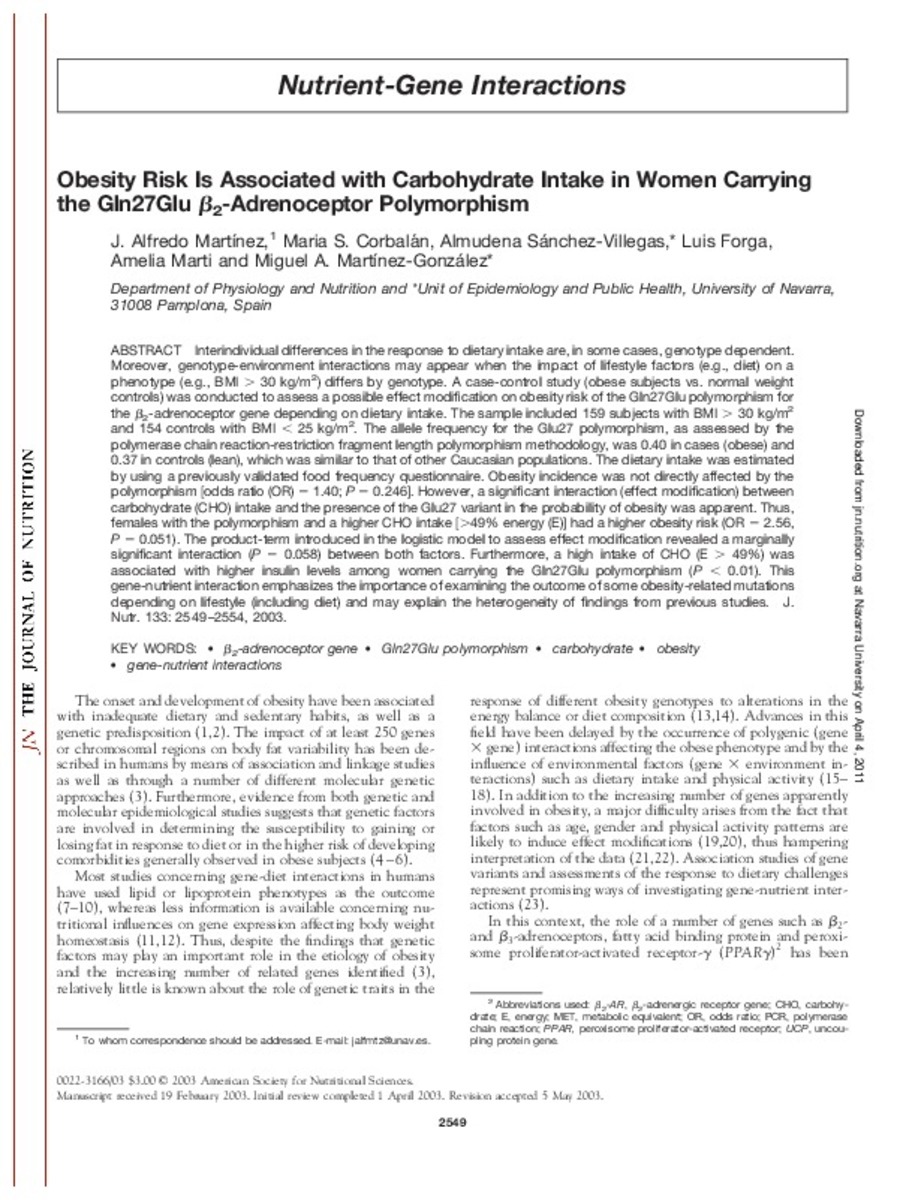Obesity risk is associated with carbohydrate intake in women carrying the Gln27Glu beta2-adrenoceptor polymorphism.
Keywords:
ß2-adrenoceptor gene
Gln27Glu polymorphism
Carbohydrate
Obesity
Gene-nutrient interactions
Publisher:
American Society of Nutritional Sciences
Citation:
Martinez JA, Corbalan MS, Sanchez-Villegas A, Forga L, Marti A, Martinez-Gonzalez MA. Obesity risk is associated with carbohydrate intake in women carrying the Gln27Glu beta2-adrenoceptor polymorphism. J Nutr 2003 Aug;133(8):2549-2554.
Statistics and impact
0 citas en

0 citas en

Items in Dadun are protected by copyright, with all rights reserved, unless otherwise indicated.








